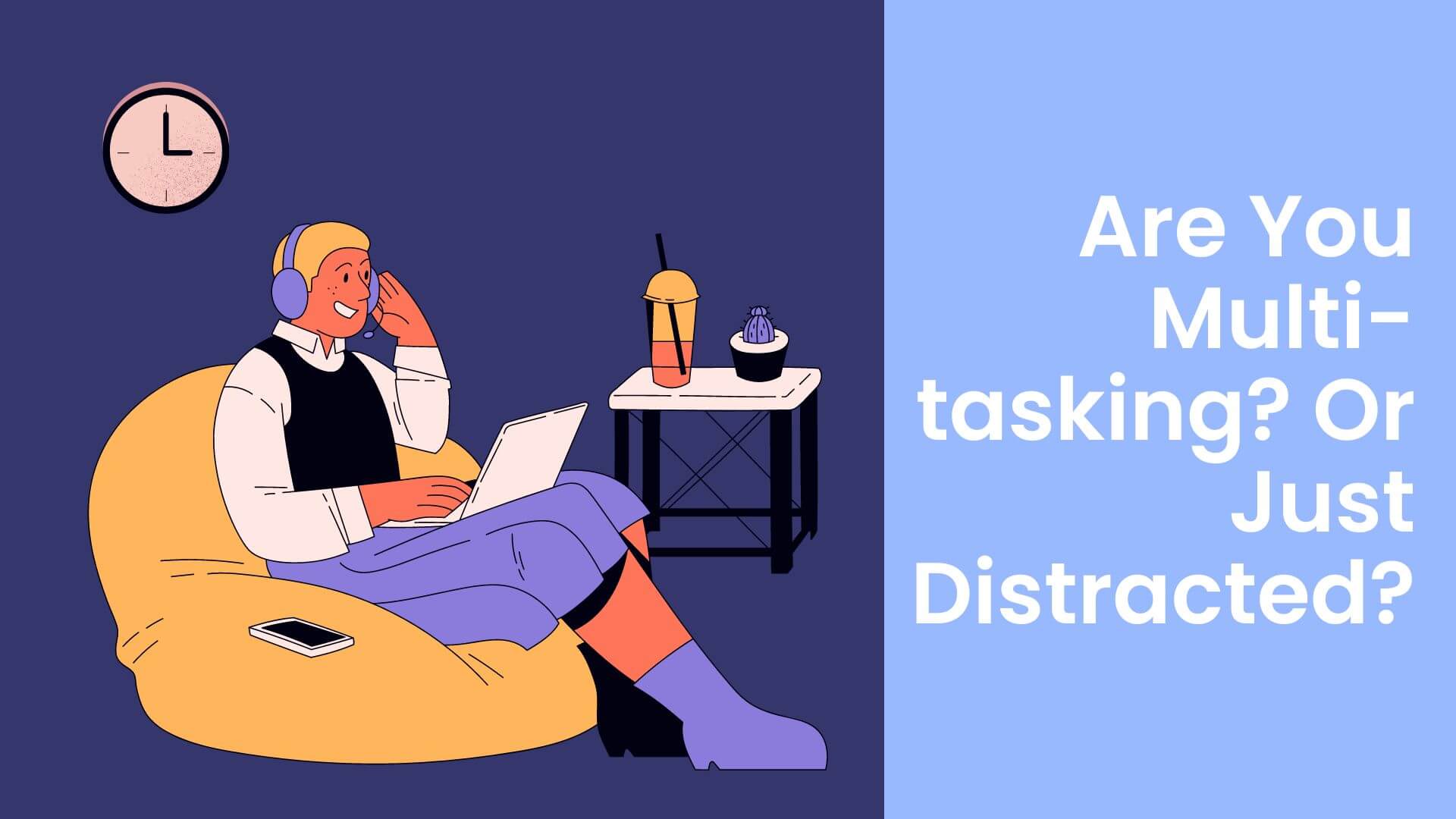When you waste a moment, you have killed it in a sense, squandering an irreplaceable opportunity. But when you use the moment properly, filling it with purpose and productivity, it lives on forever. – Menachem Mendel Schneerson
Multitasking is a skill that is very tricky. On one hand, it seems desirable and highly productive. After all, what could be better than doing several things at once? The same time invested in achieving more than one result. However, in reality, the habit of multitasking is more likely to lead to failure rather than success. So, even if you think that you are really good at it, there might be unexpected costs to multitasking.
You have limited attentional capacity
We all have a limited capacity for paying attention. We might imagine our capacity as the beam coming out of a flashlight. You can illuminate a single object very well or a couple, but less well. If you are constantly flipping between objects, you are moving the flashlight back and forth, and that makes it harder for you to truly focus on something in-depth.
Even if you feel you can, your attention suffers when it has to be constantly switched on and off. Whenever we are distracted or interrupted, it takes a while to focus back on the task at hand, and it can mean that you don’t achieve a state of full focus that is likely to encourage your best productivity.
There are cognitive costs to multitasking
When you try to do many things at once, you do each thing somewhat worse than you would if you were doing it alone. There are some tasks that can be easily done while watching TV, listening to music, or chatting on the phone. Nothing bad will happen if you do it while walking on the street. However, if you try to talk on the phone while driving or, especially text while driving, it is certain to put you at risk.
You might have to “pay” a barely noticeable cost in terms of attention, results, or success, but there are other situations when multitasking can make you do a very bad job. What’s worse is that we don’t notice that we are not doing a great job until we see the results.
We are blind to the costs of multitasking
One of the dangers of multitasking is that, whilst multitasking, we don’t really see that we’re doing things worse than we could otherwise. Instead, we feel fine. It is related to the same lack of full focus, which makes it harder to evaluate the results of our work.
It can be outright dangerous in some situations, such as while driving. In other cases, it can mean that we do worse on a test or assignment, turn out a less-than-optimal work project, or make a preventable mistake.
Multitasking is stressful
There more things we have to juggle, the more stressed we get. Our brains are not made for handling too much stuff at the same time. For example, having to remember a ton of information at once or trying to plan for several things at once is worse than trying to remember just one thing.
One important strategy we can use to handle this is writing things down. We could put it in an app, on a post-it note, or anywhere else. But outsourcing this kind of multitasking can bring our stress down and allow our brain to do its best with each task. Write things down in a calendar, on your phone, in a messenger app, and so on. Outsource remembering and focusing on many things at once.
Multitasking is better replaced by sequential work
We can usually do our best work when fully immersed in the task. For this, we should plan for time and spaces to focus on whatever we need to do. There are small additions that we can make, like listening to music or watching TV, but the harder the task, the worse it is to combine it with other stuff.
We cannot avoid multitasking completely. But we can be aware that it’s not the best way of achieving our goals or putting our best foot forward. Instead, focusing on one thing at a time will help us achieve the right results and help our brains produce the finest possible work.



